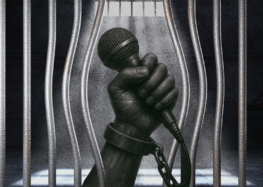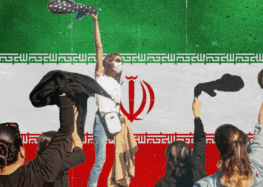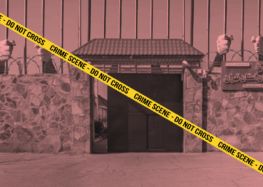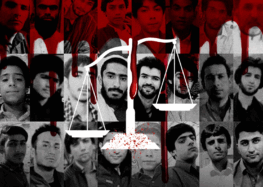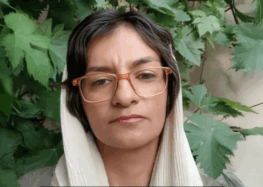Tehran Prosecutor Goes on the Defensive Over Hunger-Striking Political Prisoners
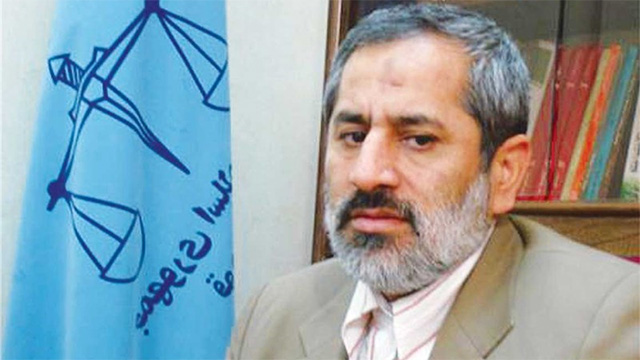
In an apparent response to growing pressure to resolve the issue, Tehran Prosecutor Abbas Jafari Dowlatabadi has criticized media coverage of a wave of hunger strikes in Iran by political prisoners, as well as the request by a conservative member of Parliament for the Judiciary to review the case of Ali Shariati.
“Some in the media are blasting off every day about hunger strikes by national security prisoners and hurling accusations against the prosecutor’s office and the Judiciary,” he said, after veering into the topic while addressing deputy prosecutors on January 11, 2017. “Some officials are even defending these convicts without knowing about their case.”
“This is wrong and can be taken advantage of by the enemy,” he added, indirectly referencing western countries, especially the United States. “The same things being said by some of our officials about national security convicts are being repeated by some human rights organizations.”
“Currently, Mr. Ali Shariati, whose most important charge relates to his participation at a rally in front of Parliament to protest against acid attacks on women in Isfahan, has been on hunger strike for 65 days to protest his five-year prison sentence,” said conservative MP Ali Motahari on January 4, 2017, via his Instagram page. “I hope the Judiciary will also take a look into this case and resolve it wisely so that it won’t become an excuse for the enemies of the Islamic revolution to criticize us for human rights [violations].”
Shariati in Critical Condition
More than 70 days on hunger strike has left imprisoned civil rights activist Ali Shariati—who started refusing food the day he began his sentence in Evin Prison on October 31, 2016—in danger of losing his liver, according to the prison’s medical staff. His wife Motahare Parsi made the statement on January 11, 2017 via Twitter, adding that a day earlier Shariati had fainted in the prison’s clinic.
After being attached to an IV and regaining consciousness, prison officials “wanted to forcefully take him to the hospital, but he refused,” said Parsi in another tweet.
Parsi added that her husband refused a request by prison officials to sign a document absolving them of any responsibility for the consequences of him not receiving hospital treatment.
Between January 4-6 thousands of people called for Shariati’s release on Twitter using the hashtags #SOSALI and #ALL4Ali.
The Judiciary agreed to political prisoner Arash Sadeghi’s demand for a case review for his imprisoned wife on January 4, 2017 following a huge Twitter storm on the 71st-day of his hunger strike.
Shariati, a long-time supporter of centrist President Hassan Rouhani, is demanding a review of his five-year prison sentence for “acting against national security by participating in a protest against acid attacks (on women) in front of [Parliament] on October 22, 2014.”
Two members of the European Parliament demanded the release of Shariati and Sadeghi on January 12, 2017.
This week a UN official also condemned the Iranian government for failing to prevent the hunger strikes by political prisoners with “no other option but to put their life at risk to contest the legality of their detention.”
“I call on Iranian authorities to ensure that Mr. Arash Sadeghi has access, as a matter of utmost priority, to specialized health care in a hospital outside prison, in compliance with international human rights standards and medical ethics in particular the principles of informed consent,” said the UN’s special rapporteur on the human rights situation in Iran, Asma Jahangir, on January 9, 2017, while urging the government to release all political prisoners.
In addition to Shariati, at least two other political prisoners are currently on hunger strike in Iran seeking access to basic rights.

